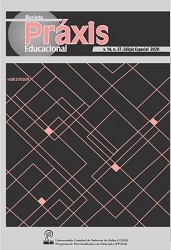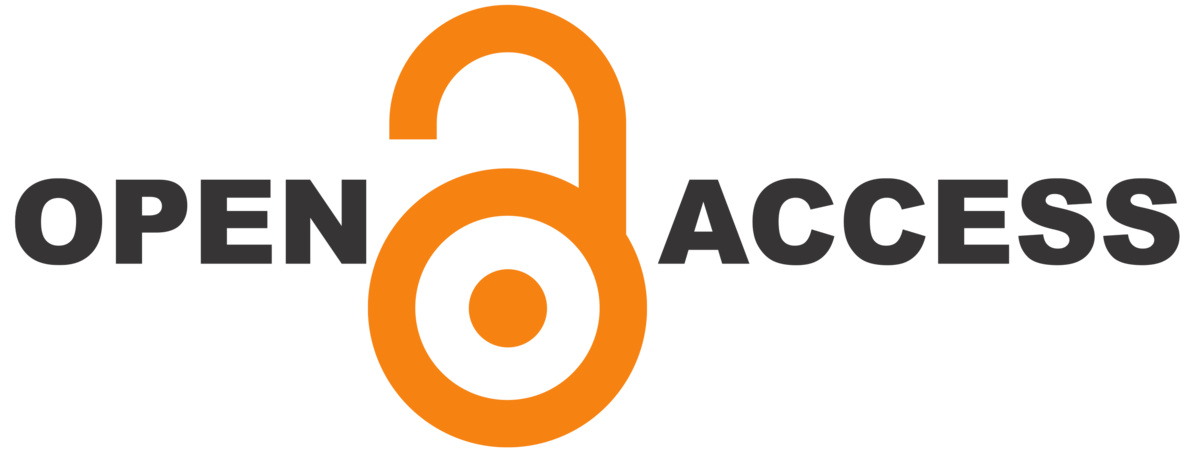EDUCATIONAL POTENTIAL OF INFORMATION AND COMMUNICATION TECHNOLOGIES IN PATRIOTIC EDUCATION OF STUDENTS
DOI:
https://doi.org/10.22481/praxisedu.v16i37.6404Keywords:
Information and communication technologies, Patriotic education, Education institutions, Innovative developmentAbstract
The educational potential of information and communication technologies in the patriotic education of students is investigated and substantiated in the article. Conducting a pedagogical experiment, it has been theoretically substantiated and practically proved the efficiency of using information and communication technologies in students’ patriotic education. The experience of work of secondary educational institutions on patriotic education is analyzed, diagnostic methods for studying the level of students’ patriotic education in institutions of general secondary education are selected and implemented. The set of applied diagnostic methods aimed at revealing the educational potential of information and communication technologies in students’ patriotic education is substantiated. We also have worked out the system of quality indicators of the main components of patriotic educatedness and criteria. Based on analysing psychological and pedagogical literature and studying scientists’ ideas, four levels of patriotic education have been scientifically substantiated by certain criteria and indicators. Scaling of the corresponding criteria of indicators taking into account indicators of their appearance in 0-3 points is carried out.
Downloads
References
Bukanov H., Kolesnyk A., Tashkinova O., Kotlubai V., Koval V. (2019). Social marketing in public administration of social service institutions. Revista Genero & Direito, 8 (6), 457-468.
Chace, J. (1997). An Extraordinary Partnership. Marshall and Acheson, 76, 191-194.
Chernega, P. (2012). Ukrainian ethnopedagogy - the science of the content, principles and methods of folk pedagogy of Ukrainians. The main directions of formation of professional qualities of specialists in educational work in the armed forces of Ukraine, 4, 65-67
Cichosz, W. (2013). Możliwości dialogu wychowania chrześcijańskiego ze współczesną edukacją polską. Wydawnictwo „Bernardinum”, Pelplin.
Demyanchuk, A. (2019). Psychological and pedagogical features of patriotism formation in senior preschoolers. Psychological and pedagogical bases of humanization of educational process in school and high school, 1, 13-20.
Dukhnovich, A. (2009). Folk pedagogy in favor of scientists and teachers. M.: Pedagogy.
Frączek, Z. (2006). Ojczyzna jako wartość edukacyjna w obliczu integracji europejskiej. in: Janiga W. (ed). Wychowanie do patriotyzmu. Przemyśl–Rzeszów, 3, 457–463.
George, F. (1946). "Long Telegram". The Makings of America: The United States and the World, 2, 299-303.
Goncharenko, C. (1997). Ukrainian Pedagogical Dictionary, 1, 34-36.
Janiga, W. (2004), Wychowanie patriotyczne dzieci i młodzieży w świetle dyrektorium katechetycznego i podstawy programowej katechezy kościoła katolickiego w Polsce. Resovia Sacra, 11, 213-225.
Kapska, A. (2001). Actual problems of social and pedagogical work (modular course of distance learning): Educ. Tool, 5, 119-129.
Koval, V., Polyezhayev, Y., & Bezkhlibna, A. (2018). Communicative competences in enhancing of regional competitiveness in the labour market. Baltic Journal of Economic Studies, 4(5), 105-113. doi:10.30525/2256-0742/2018-4-5-105-113
Kvitka, S., Starushenko, G., Koval, V., Deforzh, H., & Prokopenko, O. (2019). Marketing of Ukrainian higher educational institutions representation based on modeling of Webometrics Ranking. Marketing and Management of Innovations, 3, 60-72. http://doi.org/10.21272/mmi.2019.3-05
Machuska, I. (2003). Pedagogical substantiation of the content of the program "Culture of interpersonal communication in the family", 6, 167-169.
Mishchenko, H (2004). What is the germ of patriotism? Native School, 2, 1-8.
Muszyński, H. (1996). Niektóre problemy kształtowania postaw patriotycznych dzieci i młodzieży. Kwartalnik Pedagogiczny, 3, 51-68.
Pustovit, G. (2015). Patriotic upbringing in the content of extracurricular education: present and prospects, 4 (20), 97-103.
Shinkaruk, B (1986). Patriotism: A Philosophical Dictionary, 2, 46-48.
Shynkarenko, B (2017). Information technologies as a means of patriotic upbringing of pupils in the educational process of secondary schools, 2 (12), 174-178.
Shynkarenko, In (2018). Criteria and indicators of patriotic upbringing of high school students in the educational process of institutions of general secondary education, 2 (94), 156-170.
Vygotsky, L. (1991). Pedagogical Psychology, M.: Pedagogy.
Zyazyun, I (2000). Pedagogy of the good: ideals and realities: Scientific method. K .: MAUP.
Downloads
Published
How to Cite
Issue
Section
License
Você é livre para:
Compartilhar - copia e redistribui o material em qualquer meio ou formato; Adapte - remixe, transforme e construa a partir do material para qualquer propósito, mesmo comercialmente. Esta licença é aceitável para Obras Culturais Livres. O licenciante não pode revogar essas liberdades, desde que você siga os termos da licença.
Sob os seguintes termos:
Atribuição - você deve dar o crédito apropriado, fornecer um link para a licença e indicar se alguma alteração foi feita. Você pode fazer isso de qualquer maneira razoável, mas não de uma forma que sugira que você ou seu uso seja aprovado pelo licenciante.
Não há restrições adicionais - Você não pode aplicar termos legais ou medidas tecnológicas que restrinjam legalmente outros para fazer qualquer uso permitido pela licença.












